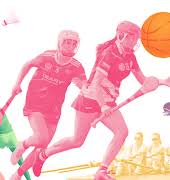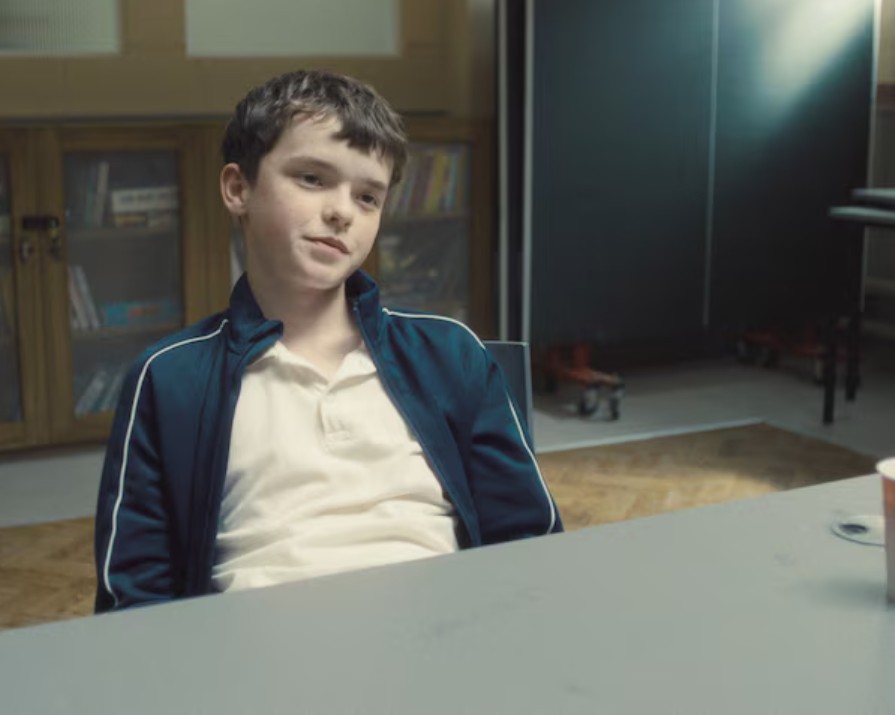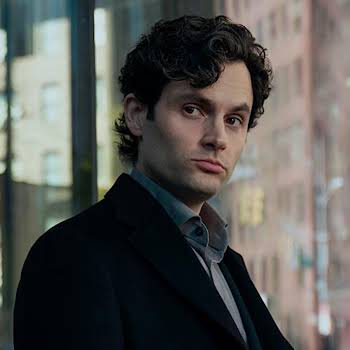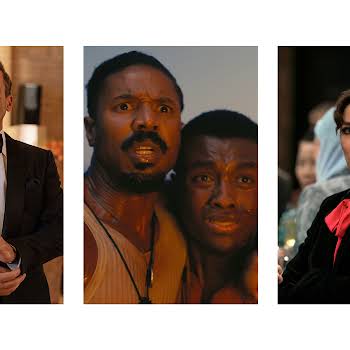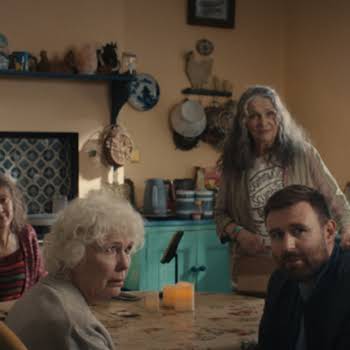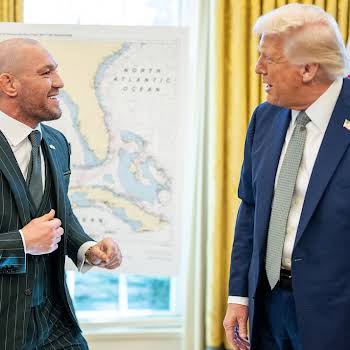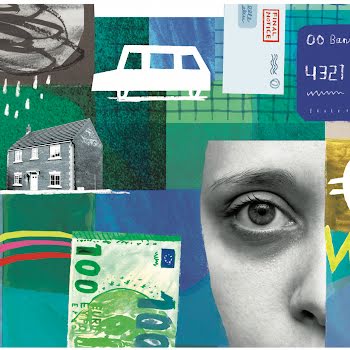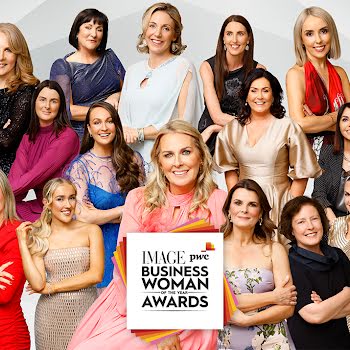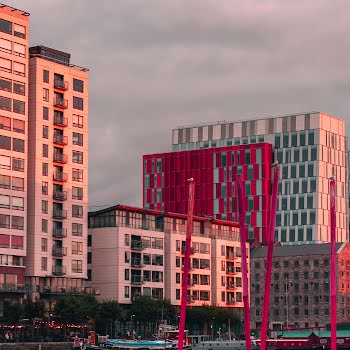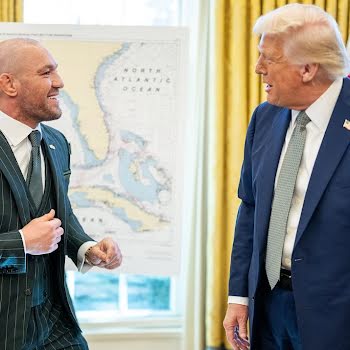By Roe McDermott
01st Apr 2025
01st Apr 2025
In a world where power dynamics are shifting, the manosphere continues to frame feminism as the enemy, fuelled by a victimhood narrative that overlooks its own complicity in patriarchal systems, writes Roe McDermott.
It’s been a strong year for the male victim complex.
Donald Trump has blamed DEI, wokeness, immigrants, trans people, college protesters, Democrats, critics, journalists, women and feminists for everything from crime rates to the economy to government failures and his mood. Elon Musk has also been lashing out at his critics and is now spending his time telling Joe Rogan that “empathy is a fundamental weakness of Western civilisation,” and is pushing us toward “civilisational suicide.” Meanwhile, Mark Zuckerberg has claimed that large companies needed more “masculine energy” because the corporate world was becoming “culturally neutered,” even though women make up only 19% of CEOs globally – a number that has actually dropped over the past few years.
Then we have Conor McGregor – who was found liable in a rape case last year but was invited to speak at the White House – still managing to feel victimised, spreading xenophobic racism and making false claims about Ireland being taken over by immigrants.
And just this week, Ricky Gervais played in Dublin’s 3Arena to a packed crowd and complained about being silenced.
These men claiming to be victims of society is an irony of the highest order. While billionaires and cultural giants insist that ‘wokeness’ is silencing them, their voices remain the loudest in the room. But this sense of male victimhood isn’t contained to men in power. This broader cultural trend of privileged men positioning themselves as victims is being mirrored in the views of men enamoured with the manosphere, where an entire movement has coalesced around the belief that men, not women, are the ones being oppressed. It’s also increasingly evident in mainstream discourse, where the alienation of men is increasingly being blamed on women, feminism and immigrants rather than patriarchy and the men who choose to uphold it.
It’s not a coincidence that this victim complex is shared between the manosphere and the most powerful men in the world. The elite are perpetuating it. They sow division among ordinary people and indoctrinate young men to be soldiers of patriarchy, so that the elite can benefit and maintain control. The elite and the mob are in a shared alliance of victimhood, and this victim complex is of course hurting young men – but it’s also being perpetuated by them, and is hurting women, queer people and immigrants more.
The manosphere shows us how victim narratives are being used by men to justify their misogyny, oppression and the harm they inflict on others. Two recent studies – Take the Red Pill: Blame Feminism? Victimization Narratives Across the Manosphere and Swallowing and Spitting Out the Red Pill: Young Men, Vulnerability, and Radicalization Pathways in the Manosphere – delve into how these communities construct their narratives and the implications for gender politics at large.
Manufactured victimhood
The manosphere is not a monolith. It encompasses a range of ideologies, from men’s rights activists (MRAs) and pickup artists (PUAs) to more extreme groups like incels (involuntary celibates) and Men Going Their Own Way (MGTOW). Despite their differences, one theme unites them: the belief that men, not women, are the true victims of modern society.
According to Take the Red Pill: Blame Feminism?, these groups craft a ‘victimisation narrative’ that frames men as oppressed by feminism, political correctness and a culture that allegedly devalues masculinity. “There is a shared perception that contemporary gender relations are fundamentally unjust to men,” the research states. This grievance-based identity is central to the manosphere’s appeal, offering its members a sense of solidarity in opposition to perceived threats.
One participant in Swallowing and Spitting Out the Red Pill described feeling “alienated and ignored” by mainstream conversations around gender. Another explained: “I used to think feminism was about equality, but now I see it’s just about women winning at the expense of men.” This is of course not true – men have lost no rights as gender equality has progressed, while the past few years has seen women’s reproductive rights being rolled back in the States, women being forced out of the workforce in huge numbers over Covid, and issues like rape culture and the gender wage gap persisting. Nevertheless, this perception of male victimisation fuels resentment and radicalisation, despite the reality that feminism has never diminished men’s rights.
Both studies highlight how manosphere discourse consistently positions feminism as the villain. Feminism is not merely critiqued as a political movement; it is framed as an existential threat to men’s rights, freedoms and even happiness. This framing is particularly evident in the “Red Pill” community – a subgroup named after the infamous metaphor from The Matrix, which they use to describe their supposed awakening to society’s true, anti-male nature. Members of the movement argue that feminism has brainwashed men into submission and that only by rejecting its tenets can they reclaim their autonomy.
The manosphere’s victimisation narratives serve a strategic purpose by creating a rallying cry. In positioning themselves as oppressed, these communities generate a potent emotional response – anger, resentment, and crucially, a sense of purpose. This aligns with broader sociopolitical trends, where grievance-based politics have gained traction across ideological divides. The manosphere’s rhetoric mirrors that of other populist movements, tapping into feelings of disenfranchisement and directing them toward a common enemy.
The victimhood narratives of the manosphere do not exist in a vacuum; they mirror a broader cultural trend in which powerful men claim persecution in response to social progress. Figures of immense influence regularly stoke fears that masculinity itself is under attack.
Donald Trump, Elon Musk, and Mark Zuckerberg have all positioned themselves as embattled figures in a culture war. And the line between traditional gender roles and racism is more of a pipeline than a divide. They said they need to be “strong men” and “protectors”, but who are you protecting us from? The answer is invariably “from the bad men,” and all too often, that’s a code for men of colour and immigrants.
Consider Conor McGregor, who has framed immigrants as dangerous while being accused of multiple violent attacks against Irish men and women. He also incited the 2023 Dublin Riots, which led to looting, arson, vandalism and assaults on 60 Gardaí. Yet he and his followers still push the narrative that immigrants, not themselves, endanger Ireland. Notably, McGregor has never supported movements against gender violence, nor have his rioting fans ever protested when white Irish men were accused of such crimes. Their outrage isn’t about real oppression but a reactionary backlash to social change. Even in entertainment, the same rhetoric appears. Comedians like Ricky Gervais, Dave Chappelle and Louis CK claim they’re being silenced, despite their massive platforms. The notion that influential men are oppressed by progress is contradictory but effective, as it diverts attention from real inequalities to imagined grievances.
Beyond the manosphere, the broader societal discourse around men often reinforces these narratives of victimisation. Take, for example, the discussion around loneliness. While it is a universal problem affecting people of all genders, it is increasingly framed as a ‘male loneliness epidemic.’ This centres men as the primary victims, largely because male suicide rates are higher. However, this is not because men are uniquely victimised by society; it is a consequence of patriarchal norms that discourage men from seeking help, forming deep emotional connections and expressing vulnerability.
By positioning loneliness as a societal rather than a patriarchal issue, the conversation suggests men suffer because society fails them, rather than recognising how rigid gender norms contribute to their struggles. This allows men to blame others instead of confronting how patriarchy limits their emotional expression and connections. In reality, these norms suppress vulnerability, hinder help-seeking and take a serious toll on mental health, contributing to higher suicide rates.
Incidentally, Andrew Tate has made numerous statements that can negatively impact young men’s mental health, relationships and ability to express vulnerability. By claiming that “depression isn’t real” and that “weak men complain about their feelings,” he dismisses the importance of mental health and discourages seeking support. His assertion that “men who cry are weak” and that “real men don’t talk about their problems” reinforces toxic masculinity, making it harder for men to process emotions healthily. His views on relationships, such as “men and women can’t be friends” and “a woman’s job is to obey her man,” promote distrust and control rather than mutual respect. Statements like “women love men who cheat” encourage dishonesty, while “I don’t have friends, I have allies” reduces human connection to mere transactions.
Additionally, his emphasis on financial success – “if you’re not rich, no one respects you” – and his claim that “poor people deserve to be poor” create a sense of inadequacy and dismiss structural inequalities. The overarching message that “if you’re not winning, you’re failing” fosters an all-or-nothing mindset that can lead to anxiety, burnout and self-worth issues. Altogether, these perspectives discourage young men from building healthy relationships and seeking help, ultimately reinforcing isolation and emotional suppression.
Yes, men are victims of patriarchy, but they’re also perpetuating it, opting in, heralding men who are its poster boys and then blaming women for their problems.
Racialised ideas of victimhood
This victim complex also has racialised elements, as young white men’s engagement in misogynistic communities is frequently described in terms of victimhood. This month, Netflix’s show Adolescence shook the world with its stunning portrayal of a community torn apart when a 13-year-old boy, Jamie, is accused of murdering a girl in his school. The four-part limited series powerfully depicts a boy shaped by the manosphere, the men around him, pornography, and the misogyny and rape culture in his school, yet unlike his peers, he makes a horrific choice: to brutally kill a girl.
The reaction to Adolescence has been fascinating to witness, as many have been rushing to claim that Jamie was the victim of bullying by the girl, and a victim of the manosphere. These interpretations are frankly remarkable illustrations of what feminist philosopher Kate Manne calls “himpathy” or “the inappropriate and disproportionate sympathy powerful men often enjoy in cases of sexual assault, intimate partner violence, homicide and other misogynistic behaviour”.
Jamie’s victim calls him an incel after he joins in slut-shaming her when a boy shares her topless photos without consent. He objectifies and preys on her, admitting he propositioned her after her humiliation, believing her vulnerability would make her easier to coerce. To claim that her reaction to his misogynistic, objectifying and predatory behaviour would be hilarious if it wasn’t so terrifying. The show’s framing here is interesting. Jamie’s violence isn’t seen on screen, with the murder itself only glimpsed from a distance on CCTV footage that isn’t shown clearly to the audience. It’s also revealed that Jamie left misogynistic and sexualised comments on women’s Instagram accounts, though they are never read aloud, whereas Katie’s messages insulting him are. Here, the show does seem to be toying with the idea that maybe Jamie is the victim in all this, a poor boy simply impacted by bullying and terrible influences, a narrative the police latch onto for a moment. The show’s third episode shows Jamie’s misogyny clearly, but it’s interesting how the victim narrative continued.
Much of the media coverage around Adolescence has framed Jamie as a victim of bullying, but more often of radicalisation and the manosphere. Indeed, figures like Andrew Tate, Robertas Ziogelis, Myron Gaines, Mike Thurston, Joe Rogan, and Donald Trump push misogynistic gender roles and, at times, racist nationalist rhetoric to grow their influence, profit and power. But it’s also true that boys and men are victims of patriarchy. It harms them and limits them, and society’s widespread backlash to gender progress and a slide back into traditional gender rhetoric is increasingly impacting their ability to see the world clearly.

However, it’s interesting to note that when young white boys become radicalised online, they’re considered ‘victims.’ If young boys of colour were being radicalised online into harmful ideologies and then TV shows were made about them killing young girls, I doubt the ‘victim’ label would be applied so readily. They would be criminalised, pathologised, demonised and/or declared to be terrorists. This racialised double standard reflects a broader pattern in which white men are granted sympathy and seen as casualties of a broken system, while men of colour in similar situations are treated as dangers to society. The result is a cultural narrative that upholds white male victimhood while dismissing the structural factors that harm both men and women.
So, when does declaring that boys and men are victims help us to recognise their humanity and need for help? When does it simply contribute to the politically motivated victim narrative that many men are latching onto to defend their misogyny and hate?
The dynamics of victimhood in the manosphere reveal a complicated truth; men are both shaped by patriarchy and deeply invested in upholding it. There’s no denying that rigid gender roles place immense pressure on men, limiting emotional expression, tying self-worth to success and punishing vulnerability. But rather than challenging the system that creates these struggles, many turn to online spaces that reframe men as the real victims, blaming feminism and social progress for their discontent.
This reversal of victimhood isn’t just about frustration – it’s a strategy. By positioning themselves as under siege, these communities justify backlash against feminist movements while sidestepping the uncomfortable reality that men, even when struggling, still hold systemic advantages. It’s grievance politics disguised as empowerment, a way to channel personal pain into collective resentment rather than meaningful change. The real question isn’t whether men suffer under patriarchy – they do – but whether they’ll recognize that dismantling it, not doubling down on it, is the only real way forward.
Breaking the cycle of resentment means creating space for men to discuss loneliness, mental health and purpose without scapegoating women. It means rejecting the false choice between strength and vulnerability. The manosphere thrives on easy answers, but real solutions require harder questions. What does masculinity look like without control? How can men build community without blame?
And what if, instead of fighting for dominance, they fought for a world where they no longer had to?







